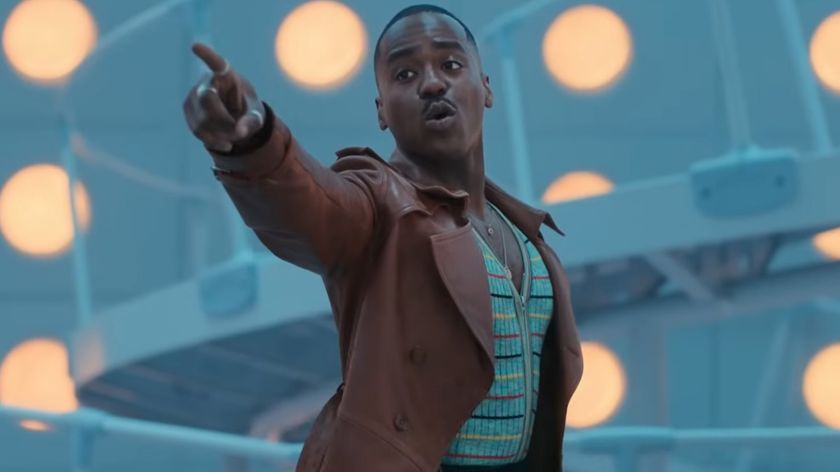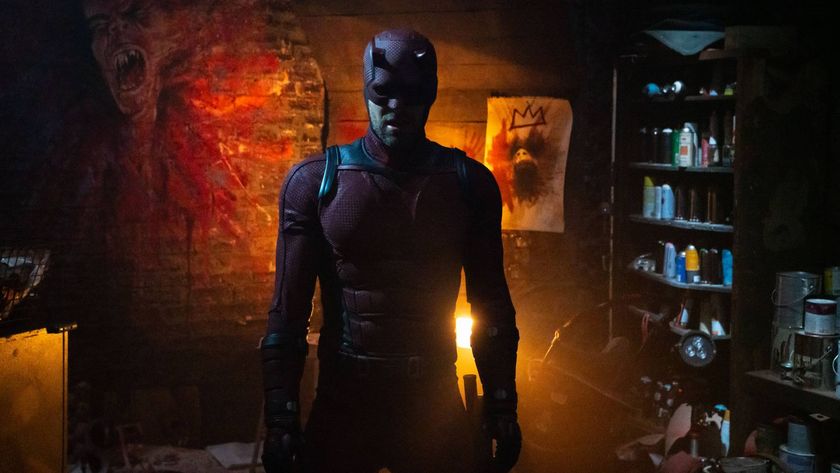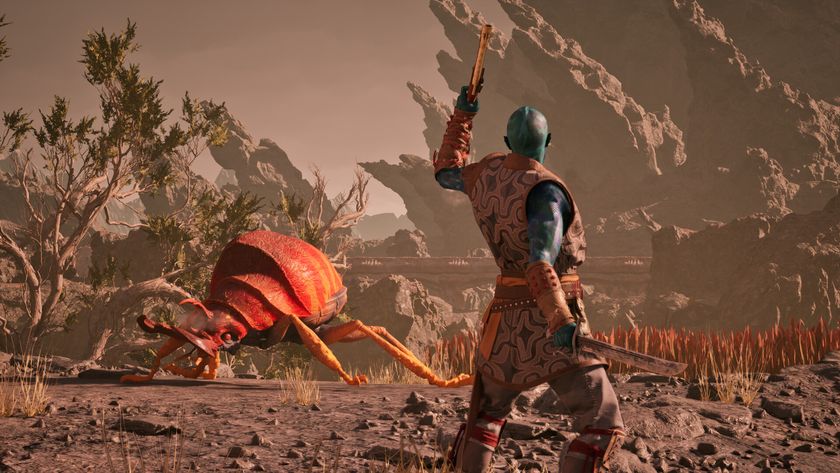Zack Snyder’s movie version of Alan Moore and Dave Gibbons’ seminal comic-book series may have had its fans, but there were many more who hated it. We take it film’s case to court...
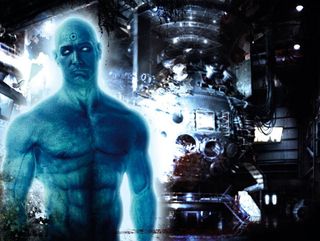
Words: Jayne Nelson
Case for the prosecution: “Kind members of the court, your honour, I would like to bring your attention to one of the most pointless films in the history of cinema. This is a movie so completely unnecessary it would make a film about paint drying look more worthy. It’s so utterly bereft of worth we can’t even believe we’re wasting time on this discussion.”
Case for the defence: “The defence would like to argue that even by talking about it, the prosecution is affording the film some worth, and thus their entire argument is invalid.”
Case for the prosecution: “Nice try, but our esteemed judge is too clever to fall for your tricks! Let’s look at the evidence – why Watchmen is such a colossal waste of time and money. Firstly, and most importantly, it had been done already. It didn’t matter that it was in a comic book; the story had been told, and told well, so there was no need to make a film.”
Case for the defence: “You could say that about any movie that’s an adaptation, though! Just because something already exists in another medium doesn’t mean you should ignore the chance to film it. Imagine if Kubrick had thought, ‘Hmm, The Shining was a great novel. Let’s make sure it’s never turned into a movie.’ Or if Walt Disney had decided Snow White should stay in a storybook. Or, to use an example closer to Watchmen , if Superman had never flown into cinemas, simply because he was already around in comic-book form!”
Case for the prosecution: “But you’re missing an important point. All those films were made to (a) earn money – obviously – but (b) to add something new to the stories. The Shining movie is different to the book. Snow White And The Seven Dwarfs made the characters iconic and fixed the way they look in our minds. Superman was reimagined for the ’70s and built on the existing character and mythos. Watchmen , meanwhile, simply filmed the comic . Zack Snyder and his team took the Watchmen series and transferred the images from the page to the screen. He added absolutely nothing, if you excuse music that doesn’t even fit the era the story takes place in!”
Sign up to the SFX Newsletter
Get sneak previews, exclusive competitions and details of special events each month!
Case for the defence: “He was faithful to the source. How on Earth can you complain about that? How many times do we complain about adaptations not being faithful? This is ludicrous!”
Case for the prosecution: “He was too faithful! Put some oomph into it, sir! Update it, perhaps, or simplify it, or add something unexpected! As it stands, Watchmen may as well be nothing more than a comic come to life, but with none of the energy or passion of the original. And that’s tragic.”
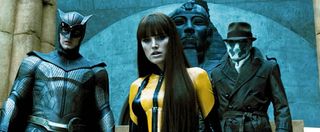
Case for the defence: “I’ll allow that the production design is massively faithful to the look of the comic-book, and I don’t see how that’s a bad thing; it was iconic. You don’t fix what ain’t broke. But Snyder and co-screenwriter David Hayter did change elements about the story. Where’s the giant fifth-dimensional cephalopod? They were brave enough to remove one of the most memorable things about the book!”
Case for the prosecution: “Which is ironic, because that’s the one thing we think they should have kept in the film.”
Case for the defence: “There’s no pleasing you, is there?”
Case for the prosecution: “ Watchmen is a comic-book. It’s filled with superheroes and supervillains. It’s played deathly seriously, yes, but it’s still a traditional comic fantasy at heart, which is why the giant squid-thing that gets destroyed at the end is such a huge part of it. Comics can bring crazy concepts like that to life. The fact Mr Cephalopod was left out of the film showed that Snyder wasn’t confident that audiences would understand the very world he was trying to bring to life. He didn’t trust them enough to get that it wasn’t supposed to be ‘silly’.”
Case for the defence: “Well, he probably had a point. People already struggled with the idea of Rorschach’s mask or Dr Manhattan. Why throw a giant octopus into the mix? The studio wanted the film to make money, after all. Anything that could have hurt it had to go.”
Case for the prosecution: “Shame they didn't drop Ozymandias’s terrible wig, then. Or Matthew Goode in general. Great actor, but wasted in this role. He’s supposed to be Charles Atlas-like prime physical specimen of manhood but he sucks the life out of every scene just by being so listless.”
Case for the defence: “Tsk, he’s barely even noticeable in the original comic until the end. And every film has its casting issues. Any inadequacies you may see in Goode are more than made up for by Jeffrey Dean Morgan as The Comedian – he was born to play that role! And I won’t hear a word against Malin Akerman and Billy Crudup, either. Patrick Wilson’s spot-on, too. It’s a great cast, topped off with Jackie Earle Haley absolutely nailing it as Rorschach.”
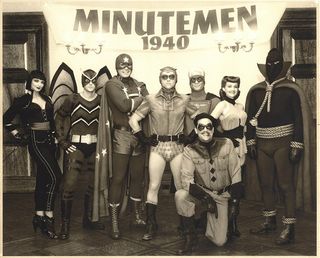
Case for the prosecution: “Seeing as you mention Akerman and Wilson, here’s my next argument: the film is too long. Subplots should have been cut out, to avoid confusing people who’ve never read the comics. The sex scene between Night Owl and Silk Spectre, for instance, was a complete waste of time. And the music over it! I’m shuddering so hard now my teeth are rattling!”
Case for the defence: “It was supposed to be cheesy! I thought it was hilarious, and it was nice to see that scene in there to give these superheroes more of a human side.”
Case for the prosecution: “All I could think about was, ‘Why does anybody care about these two?’ Watchmen is, at its heart, a murder mystery. That’s what the film should have focused on. It was massively overlong.”
Case for the defence: “You mentioned, ‘People who’ve never read the comics,’ just then. Don’t you think Watchmen should have been made, just to show non-comic-literate audiences what they’re missing? It’s a wonderful story, whether you say there’s too much of it or not. Perhaps some people who’d never picked up a comic-book in their life walked out of Watchmen , wandered down the road to their local comic store and bought some?”
Case for the prosecution: “Yes, and bluebirds sung in the sky and bunnies hopped happily through the woods. What kind of ideal world are you living in? Of course they didn’t!”
Case for the defence: “Your honour, I request that the prosecution provides proof that not a single person on this planet of seven billion people went out and bought a comic after watching Watchmen .”
Case for the prosecution: [Sigh] “Your honour, I ask that my sarcasm be stricken from the record.”
Case for the defence: “I will maintain that for some people – not all, obviously, but some – the Watchmen movie was a catalyst, the first time they realised just what an intelligent, thoughtful and well-structured thing a comic-book could be. The fact the film was almost entirely accurate didn’t hinder it: it helped. By making a film almost shot-by-shot identical to one of the most iconic comic-books of all time, Snyder proved that comics are an art form, whether mainstream audiences accept that or not. He did a magnificent job with a very, very difficult story and a peculiar, often (intentionally) unlikeable cast of characters. He managed to make a giant, glowing, naked blue man seem credible. He made us believe that a woman as tiny as Malin Akerman could kick ass in a prison riot. He brought Watchmen ’s message to the 21st century and proved it was still valid. For this, he deserves credit, and Watchmen deserves a damn sight more love than it received.”
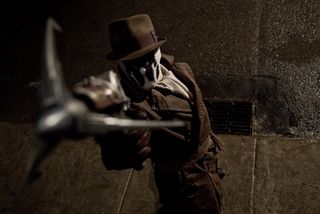
Case for the prosecution: “ Watchmen was nothing more than Zack Snyder stealing the work of a master and passing it off as his own.”
Case for the defence: “Nonsense. Not a single person in the world went to see that film without knowing it was adapted from a comic-book.”
Case for the prosecution: “Your honour, I request that the defence provides proof that not a single person on this planet of seven billion people went to see this film without knowing it was adapted from a comic-book.”
Case for the defence: “Touche. But I will say this: even if you think Watchmen is nothing more than Snyder ripping off a masterpiece, he did it almost perfectly. And look at the extras he threw in, too: the gruesome cartoon version of Tales Of The Black Freighter , or the motion comic . Plus, I will maintain until my dying day that the opening credits of Watchmen are extraordinary, giving an introduction to Alan Moore’s world that is second to none.”
Case for the prosecution: “I will concede the point that Watchmen 's opening credits are wonderful.”
Case for the defence: “Thank you.”
Case for the prosecution: “But I’d still rather read the graphic novel.”
Case for the defence: “And I’m happy to read the graphic novel and then watch the film.”
Case for the prosecution: “I'll stick with not watching the Watchmen .”
Read some of other Isn’t It About Time features

SFX Magazine is the world's number one sci-fi, fantasy, and horror magazine published by Future PLC. Established in 1995, SFX Magazine prides itself on writing for its fans, welcoming geeks, collectors, and aficionados into its readership for over 25 years. Covering films, TV shows, books, comics, games, merch, and more, SFX Magazine is published every month. If you love it, chances are we do too and you'll find it in SFX.
Most Popular





